Cognitive-behavioral therapy is a commonly used intervention for treating addiction and mental health disorders. The core goal of cognitive-behavioral therapy, or CBT for short, is to change negative patterns of thought and behavior to produce healing and progress. Cognitive-behavioral therapy sessions challenge disordered thinking, improve communication skills, promote emotional stability, and develop coping mechanisms. Notably, CBT is one of the best methods for treating people with a dual diagnosis.
Contact Athens Recovery at 844.959.4998 to learn more about our cognitive behavioral therapy program.
What Is CBT?
CBT is a method of treating addiction and mental health that prioritizes altering negative patterns of thinking and behaving. Several core principles govern the implementation of CBT. First, psychological ailments are at least in part influenced by negative ways of thinking. Second, psychological problems also stem from problematic behavior. And third, people can learn better ways of thinking and behaving that relieve mental health symptoms and improve quality of life.
Strategies used to produce outcomes during CBT include:
- Learning to recognize distorted thinking
- Understanding personal motivation for certain behavior
- Implementing problem-solving skills and coping mechanisms
- Confronting fears and sources of shame rather than avoiding them
- Roleplaying emotionally-charged situations to practice new ways of responding
- Using techniques to calm the body and mind
CBT is a form of therapy that is action-oriented and focused on practice. Individual sessions usually involve some kind of exercise that helps people develop healthier thoughts and behaviors. Another thing that differentiates CBT from other forms of therapy is its emphasis on the now. Client history is not ignored. However, the therapist spends more time addressing how to modify things in the present to create the growth necessary to move forward.
What Is Dual Diagnosis?
Dual diagnosis is a type of treatment that addresses a substance abuse disorder and a mental health disorder at the same time. It contrasts with the sequential treatment approach, which was the historical norm for some time. Sequential treatment aimed to take care of one problem at a time without recognizing the interconnectedness of substance abuse and mental health. Dual diagnosis has replaced sequential treatment as the preferred method for tackling substance abuse and mental health treatment.
The variety of possible dual diagnoses is nearly endless. One of the most common types of dual diagnosis is depression and alcohol use disorder. Another example is panic disorder and opioid addiction. Anytime addiction and mental health disorders overlap, someone is considered as having a dual diagnosis.
The intensity required in overcoming the confluence of addiction and mental health troubles means people with a dual diagnosis often see the best results from attending residential treatment. Residential treatment is also referred to as inpatient treatment. This structure allows for constant monitoring and care that ensures a person’s full needs are met.
CBT and Dual Diagnosis at Athens Recovery
CBT for dual diagnosis is recognized as one of the best elements of a comprehensive treatment plan. First, CBT has decades of evidence to back up its effectiveness. In addition, it is commonly recognized as a premier intervention for both addiction and mental health disorders. Those two factors alone make it a natural fit for treating dual diagnoses.
Another positive regarding dual diagnosis and CBT is the action-first focus deployed during CBT sessions. Seeing tangible progress during addiction treatment is important for building motivation and ensuring treatment retention. Mastering new skills and altering patterns of thought that otherwise hold someone back from meeting recovery goals is part and parcel of the CBT experience.
Discover CBT for dual diagnosis by reaching out to Athens Recovery at 844.959.4998.

